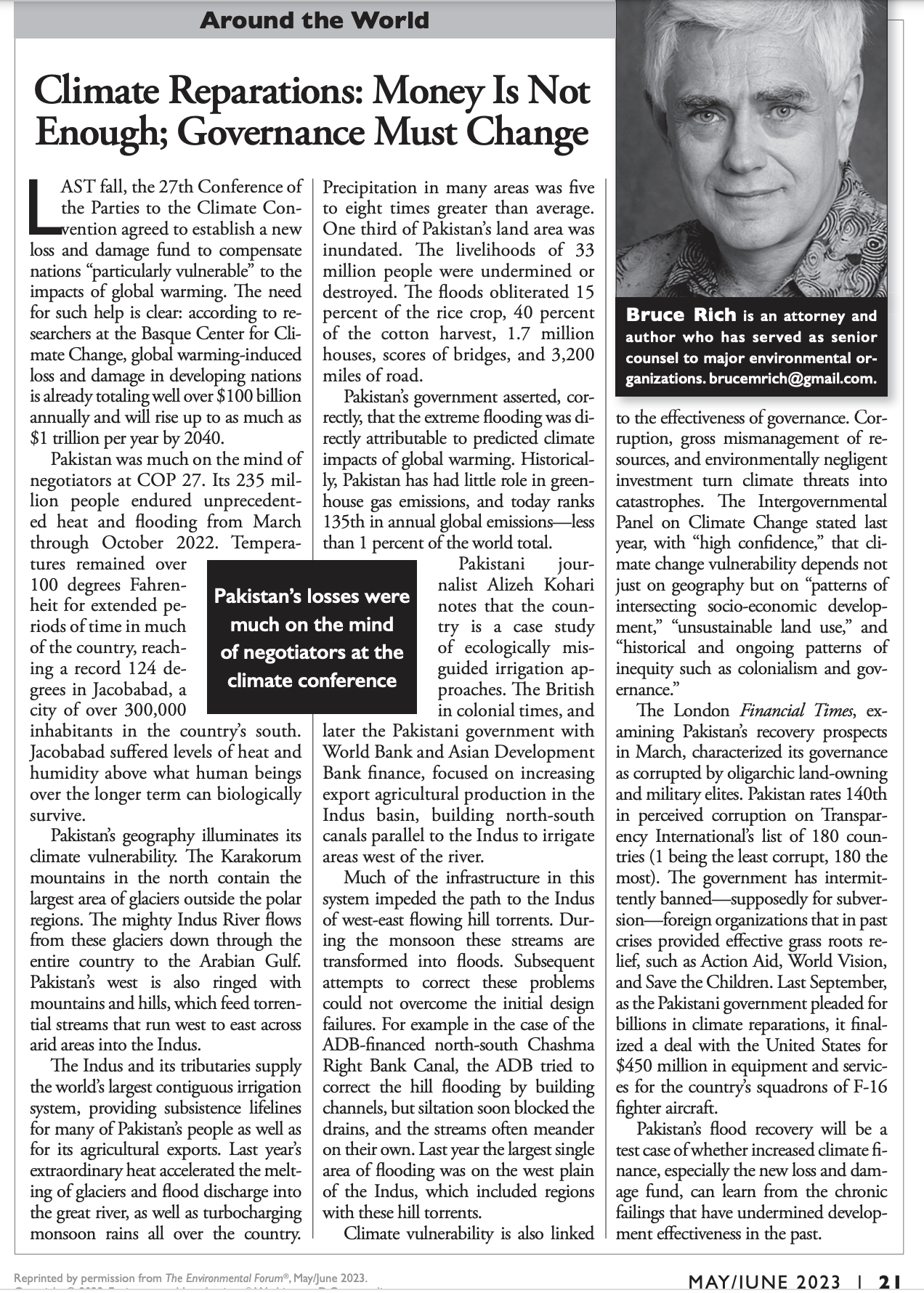- Bruce Rich
- Environmental Forum
- May/June 2023
- 21
Pakistan was much on the mind of negotiators at COP 27. Its 235 million people endured unprecedented heat and flooding from March through October 2022. Temperatures remained over 100 degrees Fahrenheit for extended periods of time in much of the country, reaching a record 124 degrees in Jacobabad, a city of over 300,000 inhabitants in the country’s south. Jacobabad suffered levels of heat and humidity above what human beings over the longer term can biologically survive.
Climate vulnerability is also linked to the effectiveness of governance. Corruption, gross mismanagement of resources, and environmentally negligent investment turn climate threats into catastrophes. The Intergovernmental Panel on Climate Change stated last year with “high confidence” that climate change vulnerability depends not just on geography but on “patterns of intersecting socio-economic development,” “unsustainable land use,” “inequity” and “historical and ongoing patterns of inequity such as colonialism and governance.”
The London Financial Times, examining Pakistan’s recovery prospects in March 2023, characterized its governance as corrupted by oligarchic land-owning and military elites. Pakistan rates 140 in perceived corruption on Transparency International’s list of 180 countries (1 being the least corrupt, 180 the most).
Pakistan’s flood recovery will be a test case of whether increased climate finance, especially the new ‘Loss and Damage’ fund, can learn from the chronic failings that have undermined development effectiveness in the past.



